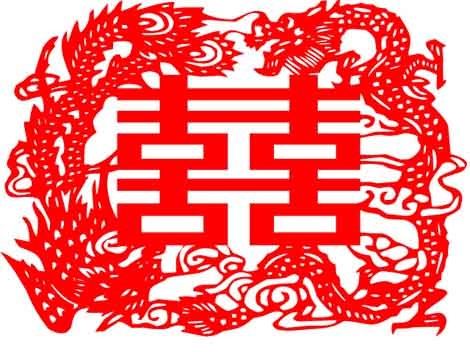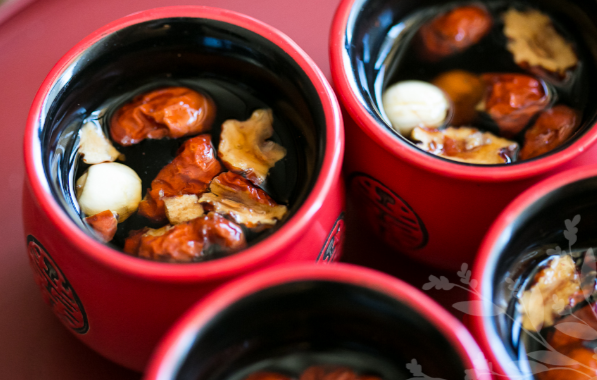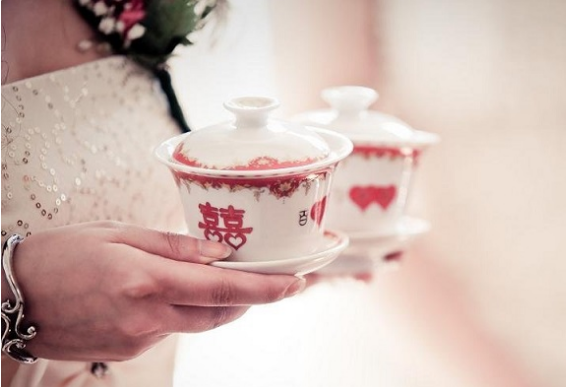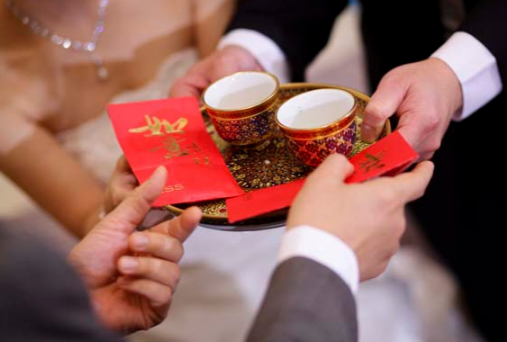Chinese Weddings

Chinese weddings differ from province to province in China and indeed there are often also differences between the cultures & practices of neighbouring villages. Over time the Chinese wedding has been reduced down to the main elements and some even take it as far as only pick out which elements they want; usually retaining only the most fun parts! In our wedding we are retaining the following parts:
- 1. Hair Combing Ceremony/Ritual (上头) – read on….
- 2. The Fetching of the Bride/Door Games (迎亲) – because they are fun!
- 3. The Tea Ceremony (茶道) – sign of respect
- 4. Banquet (喜酒) – It’s a Chinese wedding! Of course there’ll be food!
8 Things that typically happen at a Chinese Wedding:
Last year, after the romantic proposal in a wild flowery meadow, we sort out an auspicious date for the wedding. Traditionally, the families would seek out a fortune teller to set a date for the wedding, but those are hard to come by in England. The Chinese are very superstitious and want to marry on a lucky day, so we picked the 7 th June 2016. It was also the only day that Froyle Park still had available! We didn’t want to rush things by packing everything into a single day so we’re having the event of our lives over 2 days; the Chinese celebrations are on the 6th June.
上头 The Hair Combing Ceremony
The hair combing ceremony happens the night before the Chinese ceremony with the bride at her home bathing & showering with water infused with pomelo leaves. The Chinese believe that these leaves will ward off evil. She will then put on a set of new pink silk pyjamas and bedroom slippers.
A good fortune woman is one who is married with surviving husband & children would conduct the ceremony. The mother of the bride is carrying out the ceremony since she is a good fortune woman. The bride will sit in front of an open window with the moon visible or in front of a mirror. Traditionally, the ritual is done where the moon is visible, so that the lunar god of fate Yue Lao 月佬 could watch over the couple. Candles and incense may be lit for worshipping my ancestors.
The table for the ceremony is typically laid out with the following items: a pair of dragon & phoenix candles for the ancestors, a traditional wooden comb, a round mirror, a ruler, red head string, red scissors, double happiness towel, perfume press powder, sewing kit and a red scarf. These are all symbolising a complete sweet marriage with many generations to come. The red head string is used in the ritual to symbolise the string of fate, which Yue Lao uses to tie on the couple to bind their fate together.
Some practice combing the hair 3 times and some 4, after which, a piece of red head string is tied to her hair with a sprig from a fir tree. The good fortune woman will bless aloud as she combs the hair. The 4 blessings are:
- 一梳梳到尾: 1 st combing, continuous from beginning till end, may you be together all your lives.
- 二梳梳到白发齐眉: 2nd combing, may you have closeness and harmony in your marriage for a hundred years, till a ripe old age.
- 三梳梳到儿孙满堂: 3rd combing, may you fill your home with children and grandchildren.
- 四梳梳到四条银筍尽標齐: 4th combing, may you enjoy a long life together, till your hair and even eyebrows are white.
A sweet soup containing pink and white rice ball with red dates and lotus seed will be served to the bride. The round rice balls symbolize a complete and sweet marriage.
At the end of this ceremony, the bride's mother will give her with a treasure box filled with some jewellery and token red packets (红包 - hóng bāo). This is a farewell gift to a treasured daughter who is leaving her childhood home. The Chinese believe that a person only becomes an adult after marriage. The hair combing ceremony is actually a coming of age ceremony for the couple, yes, usually the groom does this too. For Chinese parents, their child is only considered an adult after being married.
Here it is in action:
迎亲The Door Games/ Fetching of the Bride
Chinese are big about celebration and weddings are not meant to be quiet. For Chinese wedding couples, both sides will have to gather a good number of people to join in the wedding celebration. Besides relatives, bride and groom get their friends to be their Brothers (Best Man) and Sisters (Bridesmaids) to make the wedding a lively celebration. The brothers will accompany the groom in fetching the bride, the sisters will be with the bride and plans gate-crash obstacles for the groom’s party.
Before setting off to the bride’s family house, the groom will have to prepare a bouquet of flowers for the bride. Once arrived, the groom must wait in the car for a younger relative of the bride’s family to open his car door. After the car door is open, the groom is to give a hóng bāo (红包) to the male relative and in return he will receive two mandarin oranges as a symbol of good luck that he has to leave in the car.
The groom and gang will be blocked at the door step by the bridesmaids. In order to gain entry, the groom and his best man will have to complete the quests set by the sisters and give a satisfactory amount in the Door Opening hóng bāo (开门红包) to the sisters.
When the groom finally gets to the bride’s maiden room, he has to presents the bouquet of flower to the bride. In the past, the groom presented the big red wedding ball (花球) to the bride, nowadays we use flower bouquet instead.
Check out some of the door games at other Chinese weddings and prepare yourselves for what the bride’s sisters could potentially have in store for the groom and his merry band of men: https://www.youtube.com/results?search_query=chinese+wedding+door+games
茶道The Tea Ceremony
In China, serving tea when guests come is a very traditional propriety. It is a significant way to show respects. In the wedding, this act is in respect and gratitude to her parents for all the years of love and care. Besides this, tea ceremony is much meaningful in a wedding. Tea is the symbol of purity, stability and fertile. The purity of tea represents the love is pure and noble; the stability of tea stands for faithful love; the fertile of tea represents the family will have many children.

Traditionally, red dates, peanuts, longans and lotus seeds are added in the wedding tea ceremony. Because in Chinese, reading these four ingredients the above order sounds like “to have baby as soon as possible", which is a very good wish for new couples.

At the tea ceremony, the couple will kneel in front of the seated elders and serve sweet longan tea to them. A female relative or match maker can help to pour the tea and rinse the cup. The couple will receive gifts in the form of red packets (hóng bāo 红包) or jewellery from the elders presented on the serving tea tray after serving the tea. Note that the bride is to be at the right side of the groom. The male elder being served will sit facing the bride. The female elder will sit facing the groom.
i
The order of service at our tea ceremony is:
- Angela’s parents
- Tim’s parents
- Angela’s Nan
- Tim’s Grandma
- Angela’s Uncle Steven & Auntie Jane
- Angela’s Auntie Shirley & Uncle James
- Angela’s Uncle Paul
- Tim’s Uncle Tony
- Tim’s Auntie Jill & Uncle Martin (Auntie Jill will drink on behalf of Uncle Martin whom will be absent from the ceremony)
- Tim’s Uncle Ian
- Angela’s Uncle Huang & Auntie Huang
After the tea ceremony, a young boy can be asked to jump and roll on the couple’s bed (压床). This is to bless the couple with many children.
喜酒 The Banquet
Of course there’s a food related part of the traditions! We modernising this step a bit, with an Afternoon Tea. Instead of a formal sit down meal, family & friends are encouraged to enjoy the garden and mingle to get to know each other.